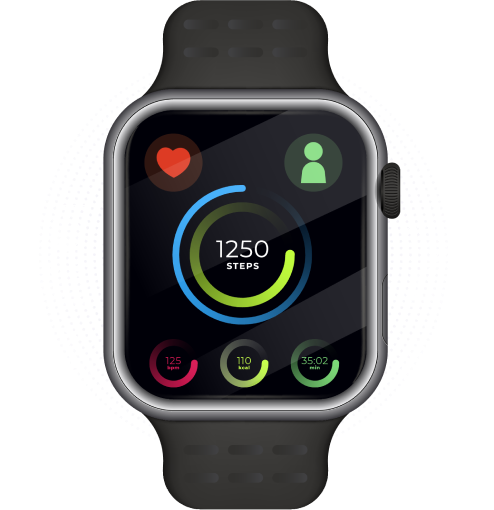Smart Aromatherapy: Recommendation System Based on Data Analysis from AppleHealth Clock
Technologies:

About the Client
Our data scientists joined the startup team to help develop a recommender system for the web application and page.
Business Context
Amazinum had to develop a recommendation system for the app and website to promote aromatherapy based on data from Apple Health Watch and customer surveys.
Amazinum Data Engineers In Action
Data Scientists built a recommender system for a client that calculated data from the AppleHealth Clock and made calculations accordingly to detect human indicators and factors such as stress, fatigue, anger, calmness, etc. In addition, data from questionnaires that he could fill out after logging into the system were also added to the recommendations. The user could enter data about allergies, tolerance, or personal wishes in them. At the same time, the user’s data was updated every day, and a portion of new recommended fragrances were thrown at him. That is, according to the user’s condition, he received fragrance recommendations 3 times a day
Challenges Faced
Among the difficulties faced by Amazinum specialists was the availability of only one user’s data. Thus, the entire recommender system had to be built and tested on a small amount of data. In addition, AppleHealth Watches does not provide all the necessary information, such as a person’s stress, fatigue or irritation, to build more accurate and personalized recommendations. In this case, it was necessary to make certain analyses and calculations, which are currently rare and, accordingly, not profitable.
Benefits Received by the Client After Implementation of Recommender Systems
- Recommender systems use personal data analysis, including heart rate, activity levels, sleep habits, and stress indicators, to customize aromatherapy suggestions based on user preferences and health needs. This guarantees that each user will receive recommendations for aromatherapy that are both pertinent and useful.
- These systems can offer recommendations that are in line with users’ goals and current health status by integrating health data. For example, the system may recommend relaxing essential oils like chamomile or lavender if the data shows high levels of tension.
- Instead of requiring users to conduct in-depth research or speak with an aromatherapist, automatic, real-time suggestions can be provided. They find it simpler to incorporate therapeutic aromatherapy techniques into their everyday activities as a result.
- Based on their daily schedule and health data, the system can remind users when to apply specific essential oils, fostering consistent routines that maximize the therapeutic effects of aromatherapy.
- The system may detect trends and patterns by gathering and evaluating user data over time. This allows the system to provide insights into the most successful aromatherapy techniques for particular health outcomes. The suggestions can be improved and refined with the aid of this ongoing feedback loop.
- Combining advice for aromatherapy with other health data enables a more all-encompassing approach to wellness. Consumers may observe how aromatherapy promotes a more balanced lifestyle by working in harmony with other health-promoting habits like exercise, food, and sleep.
- The benefits of aromatherapy can be accessed by a wider audience with the help of a recommender system, as it eliminates the requirement for specialized expertise or access to licensed aromatherapists.
- Personalized, data-driven aromatherapy recommendations can motivate consumers to actively participate in their health and wellness through interactive aspects of the recommender system.
